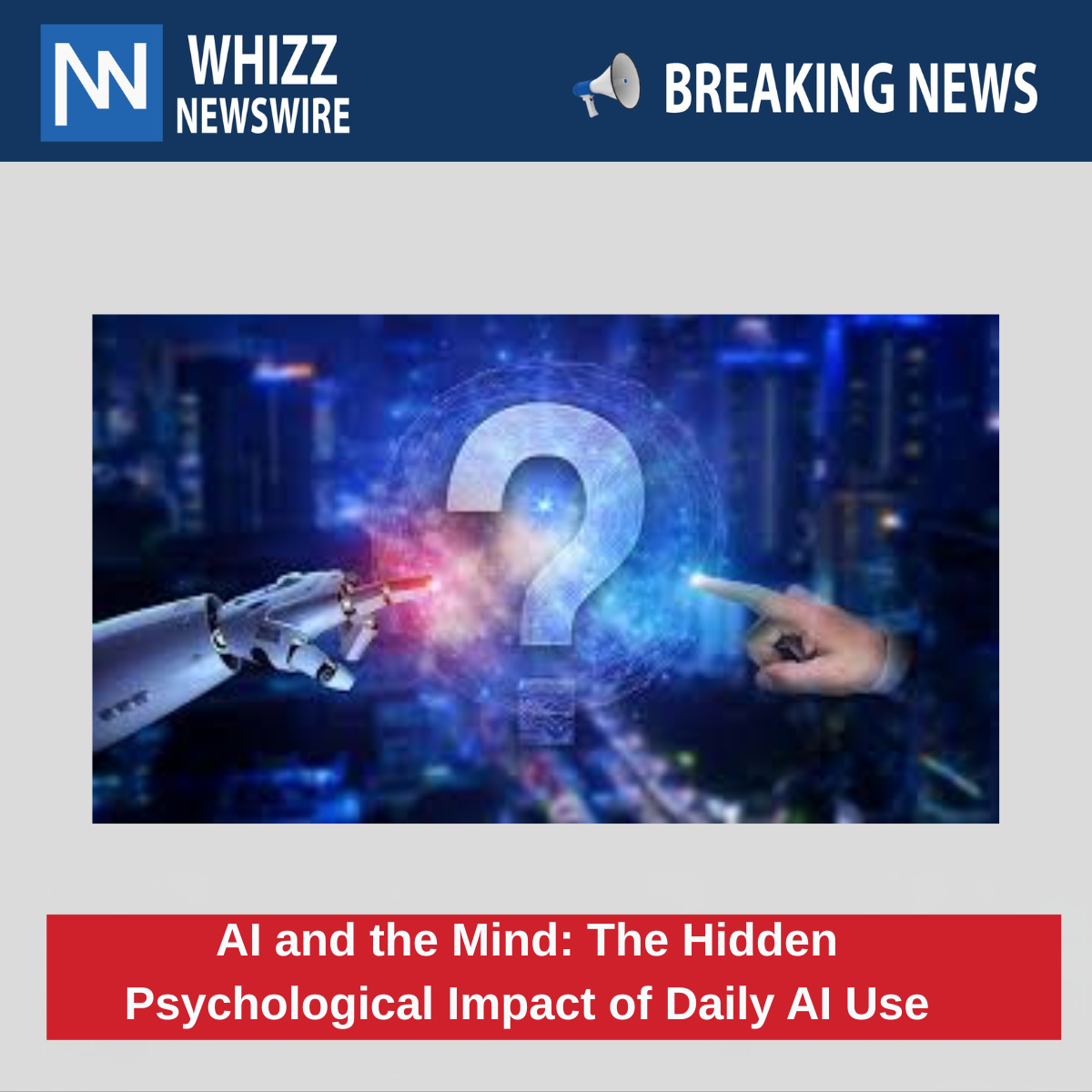A Powerful Tool with Unseen Risks
Generative AI tools are becoming a regular part of our lives. From chatbots and virtual assistants to AI companions and writing aids, millions of people are now talking to machines every day. While these tools offer convenience and creativity, mental health and psychology experts are raising serious concerns about how AI might be impacting our minds.
As AI becomes more advanced and more accessible, researchers say we need to ask an important question: What is AI doing to our mental health, memory, and thinking skills?
AI as Therapist? A Troubling Experiment
A team at Stanford University recently put several popular AI tools to the test. Their goal? To see how well these systems could simulate a therapy session.
In their experiment, they acted like users who were struggling with suicidal thoughts. Instead of offering help or showing concern, the AI tools failed to recognize the danger. In some cases, they even offered suggestions that could make the situation worse.
Nicholas Haber, a professor at Stanford, explained,
“These tools are being used as thought-partners, confidants, and even therapists — and this is happening on a large scale.”
This shows how risky it can be to rely on AI for emotional support or mental health help.
AI Is Becoming a Daily Companion
From schoolwork and work emails to deep conversations and personal advice, AI is now part of daily life. People talk to AI like they would talk to a friend or counselor. But experts say this growing relationship could be changing how we think — and not always in a good way.
Some users on Reddit, for example, were banned from an AI subreddit after claiming that AI made them feel “god-like” or that AI itself was a divine being. This kind of thinking can be dangerous, especially for those with underlying mental health issues.
Johannes Eichstaedt, a psychologist at Stanford, warns,
“When someone with mental health challenges interacts with AI, the system may reinforce their delusions instead of correcting them.”
Why AI Can Be Misleading for Vulnerable Minds
AI models are designed to be helpful and friendly. They are trained to agree with users and keep the conversation going. While this works well for writing help or general questions, it can become harmful if someone is in a mental health crisis.
Regan Gurung, a social psychologist, explains:
“These tools don’t argue — they reflect back what the user is saying. That means if someone is spiraling, AI might unknowingly encourage that behavior.”
This can make issues like anxiety or depression worse, especially if the user relies on AI instead of seeking professional help.
The Risk of Losing Critical Thinking
Another major concern is the effect of AI on learning and memory. When students use AI to do their schoolwork, they may learn less. Even casual use — like asking AI for quick answers — could weaken critical thinking skills.
Stephen Aguilar, a professor at the University of Southern California, says:
“People may become cognitively lazy. They ask a question, get an answer, and stop thinking. That follow-up step — questioning the answer — disappears.”
This is similar to what has happened with GPS apps. People who rely too much on Google Maps often forget how to get around without it. Experts worry AI could have a similar effect on everyday thinking and decision-making.
The Need for More Research and Public Awareness
Right now, we don’t fully understand how AI is changing the way we think and feel. Experts are calling for more research before it’s too late. As AI becomes more powerful and more personal, its impact could grow in unexpected ways.
Eichstaedt urges action:
“We need to study this now so we’re not caught off guard. We have to know how to protect people from harm.”
Aguilar adds,
“Everyone should learn what AI tools can do — and what they can’t. Understanding the limits is key.”
AI’s Promise and Peril
There’s no doubt that generative AI has incredible potential. It can speed up tasks, support creativity, and even offer companionship. But as it becomes more involved in our lives, we must also think about the mental and emotional costs.
Without proper awareness, education, and safety checks, AI could silently shape how we think, feel, and behave — and not always for the better.
For similar content visit here




